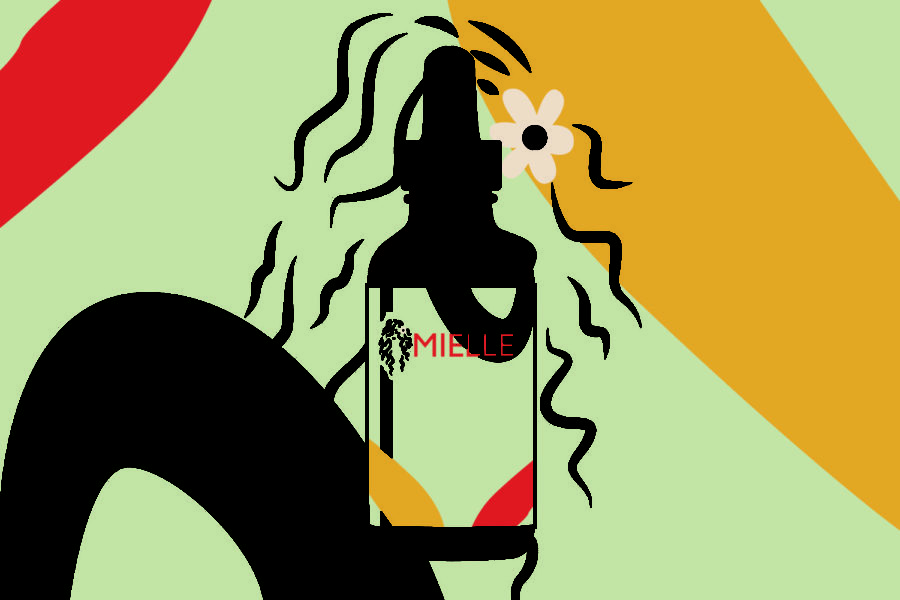The Mielle Organics controversy shows importance of buying from Black-owned businesses, regardless of race
Illustration by Allie Hall.
February 9, 2023
When Alix Earle created a video on TikTok promoting Mielle Organics Rosemary Mint Scalp & Hair Strengthening Oil on Dec. 29, non-Black women decided to hop on the trend in hopes of unlocking hair growth like Earle.
Mielle Organics is a Black-owned hair care brand that creates products for Black women, and their products are truly amazing for maintaining healthy natural hair.
Even with the recent merger with Procter & Gamble earlier this year, they continue to give back to their community and put out great products that are trusted by many Black consumers, myself included.
However, I think non-Black women can benefit from some of these products too, the Mielle Organics Rosemary Mint Scalp & Hair Strengthening Oil specifically. The company still makes products exclusively geared towards women with hair types 3A and above.
Those hair types call for products that may be denser or more suitable for thicker and curlier hair. Mielle Organics’s products work on kinky, coily and curly hair, no matter the race or ethnicity of a person.
I understand how some Black women are skeptical about non-Black consumers buying from a brand they have been loyal to – one that, from its inception, has catered to Black women specifically, especially when many mainstream beauty brands were not making products suitable for our hair type.
There are haircare brands out there for Black women, but many are not Black-owned, and from my experience, many have products that aren’t the best for natural hair.
For so long, Black-owned hair care brands lived in a secret oasis, untouched by those not in their target audience.
When I heard that non-Black women were buying from Mielle Organics, I will admit I was confused and slightly territorial over this brand. Since it was created by a Black woman, for Black women, I thought it would be something unequivocally ours, something sacred we didn’t have to worry about sharing with everyone else in the world.
But I also see how good it is that people are buying into a Black-owned brands and, in turn, giving them more money for growth and expansion.
And I think more people should do so. There are so many Black-owned brands out there that can benefit from more traction and support.
In 2020, many activists were encouraging people to buy from Black-owned businesses to combat the systemic racial issues faced by those in the Black community.
It’s important to continue this support of Black-owned businesses, no matter your race. If they have products you can benefit from, why not buy from them?
When you do, it helps bring wealth to a community who has not gotten the chance to fully embrace generational wealth or had the support of its non-Black counterparts to do so.
By buying into these businesses, consumers help close the racial wealth gap, creating more jobs and allowing companies to expand and grow with more profits, and it is an overall boost to our economy.
If you would like to find some local Black-owned businesses here in Lexington, I encourage you to go to the Lextropolis Magazine’s Black Business Directory or the Lexington Black Business Guide provided on a Lexington food blog called The Sit-in.
I encourage everyone to buy from Black-owned businesses this February. Even when Black History Month is over, we should all continue to support small and Black-owned businesses as it benefits everyone in the long run.






























































































































































